10 foods your joints love
Add these to a healthy diet to help prevent and soothe joint pain.
Updated on October 26, 2022

Can specific foods nourish healthy joints? Maybe, but the research linking food to joint health is limited, says Lona Sandon, PhD, RDN, LD, assistant professor of clinical nutrition at the University of Texas Southwestern Medical Center. "If there were a magic food out there, I'd have found it by now," says Sandon, who has rheumatoid arthritis (RA). “Your best bet to … Show More
Can specific foods nourish healthy joints? Maybe, but the research linking food to joint health is limited, says Lona Sandon, PhD, RDN, LD, assistant professor of clinical nutrition at the University of Texas Southwestern Medical Center. "If there were a magic food out there, I'd have found it by now," says Sandon, who has rheumatoid arthritis (RA). “Your best bet to manage joint pain from arthritis, Lyme disease, gout, and other conditions is to aim for an overall good diet that helps you maintain a healthy weight," says Sandon. That said, it can't hurt to add these 10 foods to your menu.
Show Less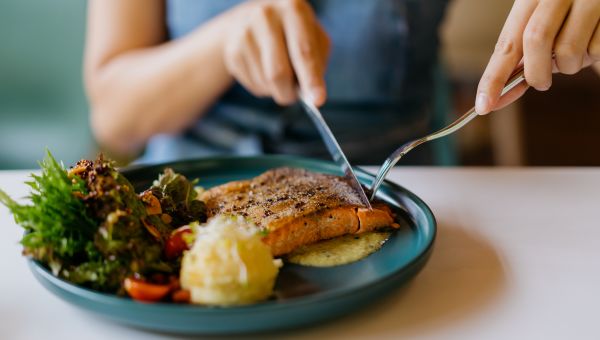
Salmon
"Coldwater fish, like salmon, are your best sources of omega-3 fatty acids," says Sandon. Omega-3s are heart-healthy fats that lower inflammation and may help prevent joint pain. Fish is also a decent source of vitamin D, a key nutrient that supports healthy bones, muscles, and immune function.&… Show More
"Coldwater fish, like salmon, are your best sources of omega-3 fatty acids," says Sandon. Omega-3s are heart-healthy fats that lower inflammation and may help prevent joint pain. Fish is also a decent source of vitamin D, a key nutrient that supports healthy bones, muscles, and immune function.
Some research has linked eating fish with a lower risk of developing rheumatoid arthritis. And if you already have RA, a higher fish intake has been associated with less disease activity. Tuna, trout, and sardines are other smart options.
Show Less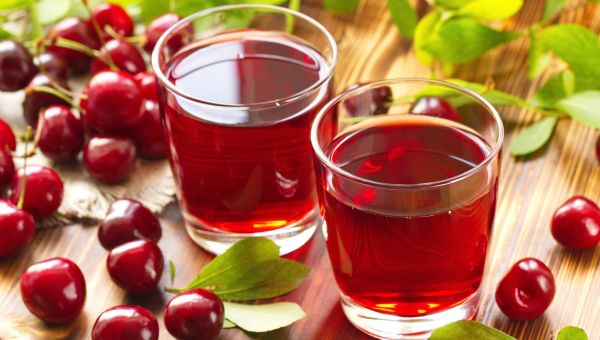
Tart Cherry Juice
Can a glass of tart cherry juice help prevent or even soothe joint pain? “Maybe,” says Sandon. An industry-funded 2019 study published in Current Developments in Nutrition found that drinking tart cherry juice helped relieve knee pain and improve joint flexibility in folks with osteoarthritis of… Show More
Can a glass of tart cherry juice help prevent or even soothe joint pain? “Maybe,” says Sandon. An industry-funded 2019 study published in Current Developments in Nutrition found that drinking tart cherry juice helped relieve knee pain and improve joint flexibility in folks with osteoarthritis of the knee. The key is to choose tart cherry varieties, such as Montmorency. Those are rich in anti-inflammatory antioxidants known as anthocyanins.
Show Less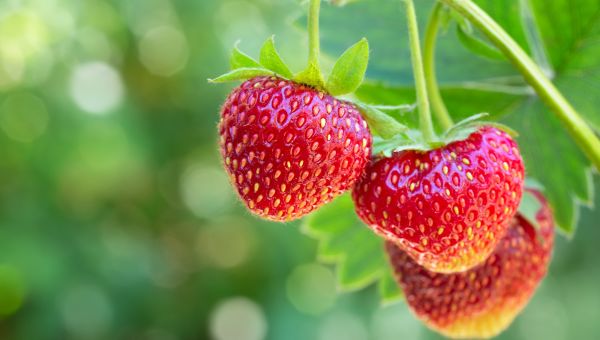
Strawberries
Like cherries, strawberries and other berries are chock-full of anthocyanins, which Sandon says may act as an anti-inflammatory to protect joint health. Strawberries are also a good source of vitamin C, which acts as an antioxidant that boosts collagen production to help protect joints and may slow down osteoarthritis.
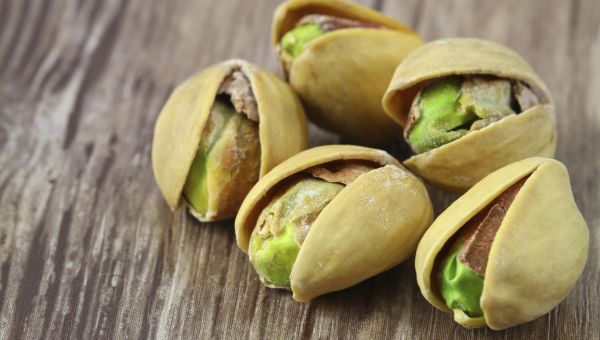
Nuts and Seeds
A handful of pistachios as a snack, walnuts sprinkled over yogurt, flax seeds added to baked goods, an almond butter-and-banana sandwich—these are just a few ways to enjoy the joint-boosting benefits of nuts and seeds. They're rich sources of the antioxidant vitamin E, which helps protect the… Show More
A handful of pistachios as a snack, walnuts sprinkled over yogurt, flax seeds added to baked goods, an almond butter-and-banana sandwich—these are just a few ways to enjoy the joint-boosting benefits of nuts and seeds. They're rich sources of the antioxidant vitamin E, which helps protect the cellular health of your joints and may help prevent joint pain. For some anti-inflammatory omega-3 fatty acids, try eating walnuts, chia seeds, flaxseed, and hemp. You’ll reap the most health benefits by enjoying a variety of nuts and seeds.
Show Less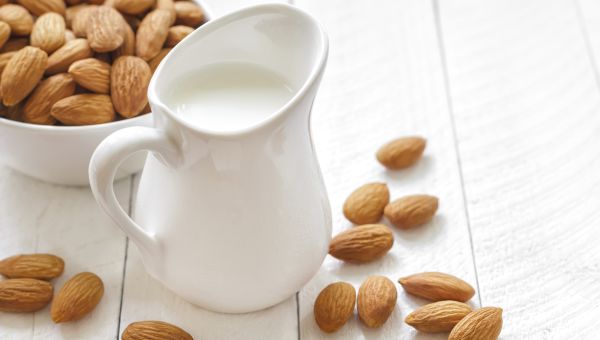
Almond Milk
People with low levels of vitamin D are more likely to develop arthritis. Your body makes vitamin D from the sun, but chances are you're not getting as much as you need. Vitamin D-fortified foods, including almond milk, can help fill the gap. And since dairy is a controversial ingredient when it… Show More
People with low levels of vitamin D are more likely to develop arthritis. Your body makes vitamin D from the sun, but chances are you're not getting as much as you need. Vitamin D-fortified foods, including almond milk, can help fill the gap. And since dairy is a controversial ingredient when it comes to joint health, vitamin D-fortified almond milk is a good alternative. Depending on the brand, an 8-ounce glass can provide 25 percent or more of your vitamin D for the day. You'll also get a nice dose of antioxidant vitamin E.
Show Less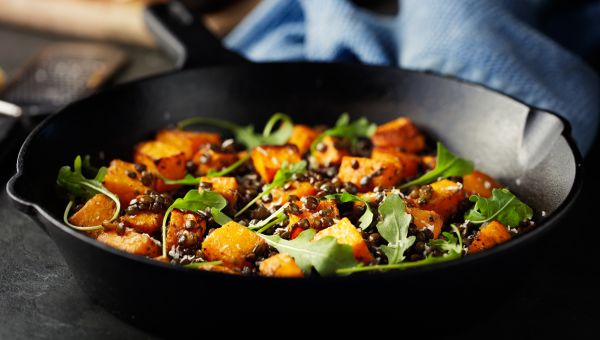
Sweet Potatoes
These tubers are among Sandon's favorite foods for nourishing healthy joints. That's because sweet potatoes are a terrific source of vitamin A, which can act as an anti-inflammatory. They're also a smart alternative to regular potatoes if you're watching your blood sugar. Enjoy sweet potatoes baked,… Show More
These tubers are among Sandon's favorite foods for nourishing healthy joints. That's because sweet potatoes are a terrific source of vitamin A, which can act as an anti-inflammatory. They're also a smart alternative to regular potatoes if you're watching your blood sugar. Enjoy sweet potatoes baked, steamed, mashed, or pureed into soup.
Show Less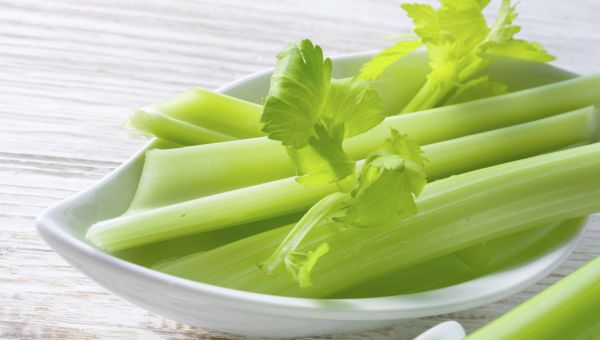
Celery
Celery, containing a mere 6 calories per stalk, has powerful health benefits. The humble veggie—and its ungainly looking bulb, known as celeriac or celery root—is a good source of vitamin K and a flavonoid called apigenin. Both nutrients help nourish healthy joints and reduce inflammation. For a… Show More
Celery, containing a mere 6 calories per stalk, has powerful health benefits. The humble veggie—and its ungainly looking bulb, known as celeriac or celery root—is a good source of vitamin K and a flavonoid called apigenin. Both nutrients help nourish healthy joints and reduce inflammation. For a joint-loving snack, top your celery with nut butter. Try raw celeriac grated in a salad or boiled and mashed as a tasty alternative to mashed potatoes.
Show Less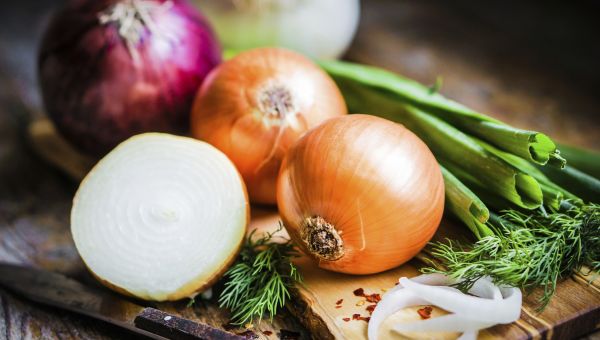
Onions and Garlic
If cooking dinner often starts with sautéing onions and garlic, that's good news for your joints. Onions, garlic, and other members of the pungent allium family contain a substance called diallyl disulfide, which helps protect the cartilage in your joints from osteoarthritis. If standard onions are… Show More
If cooking dinner often starts with sautéing onions and garlic, that's good news for your joints. Onions, garlic, and other members of the pungent allium family contain a substance called diallyl disulfide, which helps protect the cartilage in your joints from osteoarthritis. If standard onions are a little, um, strong, try milder varieties, such as leeks and shallots.
Show Less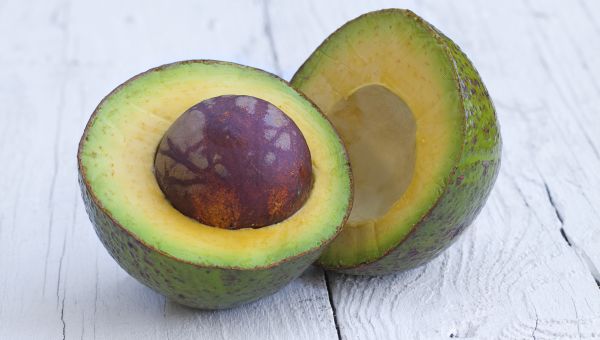
Avocados
Love your guacamole? Turns out, it loves your joints. "Avocados are rich in monounsaturated fat and a good source of vitamin E," says Sandon. You'll also get anti-inflammatory omega-3 fatty acids and something called polyhydroxylated fatty alcohols (PFAs). Give avocado oil a try, too. It has a rich,… Show More
Love your guacamole? Turns out, it loves your joints. "Avocados are rich in monounsaturated fat and a good source of vitamin E," says Sandon. You'll also get anti-inflammatory omega-3 fatty acids and something called polyhydroxylated fatty alcohols (PFAs). Give avocado oil a try, too. It has a rich, buttery flavor that's delicious in salad dressing and even baked goods.
Show Less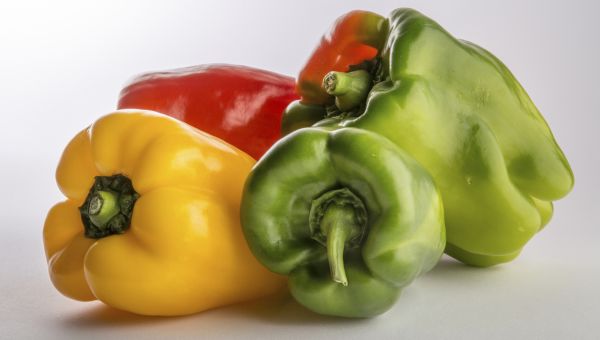
Bell Peppers
Sweet bell peppers add a dash of sunny color to salads and stir-fries. They're also one of the best sources of vitamin C. One medium red bell pepper has 152 mg of vitamin C—two and half times what you need for the day—compared to 83 mg in an orange. But that's not all. Bell peppers also have a… Show More
Sweet bell peppers add a dash of sunny color to salads and stir-fries. They're also one of the best sources of vitamin C. One medium red bell pepper has 152 mg of vitamin C—two and half times what you need for the day—compared to 83 mg in an orange. But that's not all. Bell peppers also have a substance called beta-cryptoxanthin, an antioxidant that may help prevent rheumatoid arthritis.
Show Less
NIH: National Center for Complementary and Integrative Health. Omega-3 Supplements: In Depth. Last updated May 2018.
Harvard Health Publishing. Fish consumption and rheumatoid arthritis: Natural remedy or just another fish tale? August 28, 2017.
Arthritis.org. Best Fish for Arthritis. Accessed October 26, 2022.
Di Giuseppe D, Crippa A, et al. Fish consumption and risk of rheumatoid arthritis: a dose-response meta-analysis. Arthritis Res Ther. 2014 Sep 30;16(5):446.
Tedeschi SK, Bathon JM, et al. Relationship Between Fish Consumption and Disease Activity in Rheumatoid Arthritis. Arthritis Care Res (Hoboken). 2018 Mar;70(3):327-332.
Qi Gao, Li-Qiang Qin, et al. Effects of strawberry intervention on cardiovascular risk factors: a meta-analysis of randomised controlled trials. British Journal of Nutrition. 2020. 241-246.
Yu Z, Malik VS, et al. Associations between nut consumption and inflammatory biomarkers. Am J Clin Nutr. 2016 Sep;104(3):722-8.
Schlesinger N, Rabinowitz R, Schlesinger M. Pilot studies of cherry juice concentrate for gout flare prophylaxis. J Arth. 2012 1(1).
Du C, Chapman SC, et al. Impact of Tart Cherry Juice on Joint Flexibility and Pain in Individuals with Self-Reported Knee Osteoarthritis (P01-030-19). Curr Dev Nutr. 2019 Jun 13;3(Suppl 1):nzz028.P01-030-19.
Salehi B, Venditti A, Sharifi-Rad M, et al. The Therapeutic Potential of Apigenin. Int J Mol Sci. 2019 Mar 15;20(6):1305.
Chen Y, Xue R, et al. Antiarthritic Activity of Diallyl Disulfide against Freund's Adjuvant-Induced Arthritic Rat Model. J Environ Pathol Toxicol Oncol. 2018;37(4):291-303.
Pattison DJ, Symmons DP, et al. Dietary beta-cryptoxanthin and inflammatory polyarthritis: results from a population-based prospective study. Am J Clin Nutr. 2005 Aug;82(2):451-5.
Arthritis.org. Best Nuts and Seeds for Arthritis. Accessed October 26, 2022.
USDA. FoodData Central. Accessed October 26, 2022.
More On


video

slideshow


video


video
